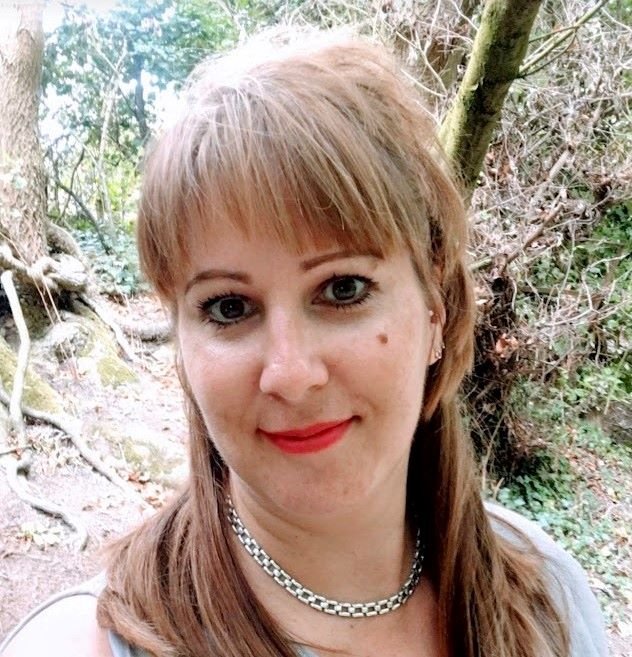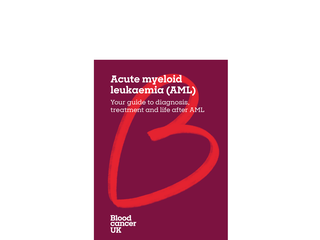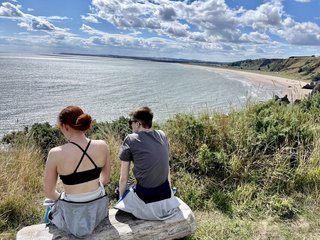Life after treatment – finding a new normal
When I got acute myeloid leukaemia (AML), my life went on pause. What I’ve come to understand now, is it never really restarted in the same way.

Anna, diagnosed with AML
At the point of diagnosis and treatment for AML, it felt like life was on hold, but I remember I kept thinking “I can’t wait to get home, I can’t wait to get back to normal”. Now, six years after treatment, I know that I never returned fully to my old life, but instead I built a new one.
It's not really talked about, how what you’ve gone through can really impact you after treatment ends.
I didn’t feel prepared for it at all because the focus was on starting treatment quickly and dealing with all the side effects. In hospital, I was well looked after and monitored. But later, when treatment had finished and I was discharged home, I wasn’t expecting all the challenges I would face, integrating back into a more “normal” life after such a life-changing experience.
I am so passionate about getting people talking about recovery and what happens next for patients, because there is a whole other stage to the experience that is often glossed over. I’m sure there are patients that do bounce back and recover quickly, but for others it can be useful to prepare for a longer recovery period.
I spent time mourning my past self and fighting to get back to who I was, when it would have been healthier to accept that this life-changing experience did change me, and that something new could be created out of it.
People have asked me how long it took to get back to where I was pre-cancer and I just think well, for me, it never happened. Once I started accepting the difference and my new normal, I felt a lot happier, a lot more at peace, and a lot more able to cope.

Anna helped create our guide to AML
She and other people with AML share lots more tips and advice in the booklet, which also covers treatment, coping with side effects and life after AML.
My advice to anyone else finding remission tough would be:
Embrace that it is okay not to be okay
It can feel like you’ve got to get over it quickly, like you have to be okay for those around you, and this is an important reminder that this doesn’t have to be the case. I heard a saying once that stuck with me: “don’t let anyone tell you how to have your cancer”. It highlighted to me how everyone is different, and everyone’s recovery will look different.
Accept your reality
Once you accept how you feel rather than fighting with yourself or getting upset, you can reach a real breakthrough. Criticising yourself for how you’re feeling and wishing for something different is a waste of time. Be kind to yourself and remember what you’ve been through and the toll that can take.
Speak to others
The patient community has been invaluable to me. I’ve become heavily involved, because I get out of it as much as I put in. Speaking to other cancer patients can bring reassurance and support when you’re going through tough times.
Don’t be ashamed of it
I’ve found that society generally doesn’t like to talk about cancer, and it feels like some people think cancer is a dirty word. Please don’t be taken in by this. Cancer is a part of our lives. It affects us in so many ways, and I feel so proud of how hard I’ve fought and what I’ve achieved while having blood cancer. We shouldn’t feel ashamed in talking about our experience, and acknowledging its impact on us can help us feel less alone in living with it.
Let yourself be heard
Don’t be afraid to speak up for yourself and allow your experiences to be validated. Sometimes you don’t always want a solution, you just want to talk through things and have someone listen and take it all in. I was struggling with pain, and I wanted my medical team to recognise this rather than dismiss it. I knew there wasn’t a cure, but having your experiences acknowledged can be reassuring and help you feel like there are others rooting for you throughout this time.
Don’t let anyone tell you how to have your cancer
I wasn’t expecting the physical and emotional journeys to be as long as they have. I thought I’d be physically better much quicker, and psychologically, well, what a thing that is! With both aspects, it’s an ongoing thing, and knowing to expect this, makes it so much easier to deal with when it comes.
Possibly the only people who really understand what a journey you are on after treatment ends, are other people who’ve had blood cancer.
Of course, I’ve grieved for the person I was before the cancer, but at the same time I am also so much braver, stronger and empowered now. And if you’ve faced blood cancer and you are reading this, whatever situation you are in right now, you are strong too.

Coping after treatment ends
Get more information and stories about coping with remission.
